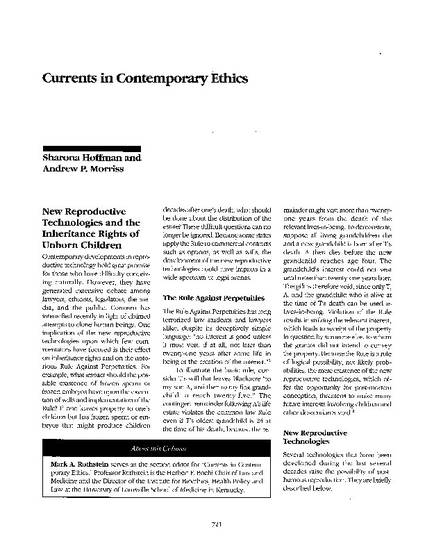
Advances in reproductive technology are an established part of the medical landscape. No longer merely the subject of science fiction, new reproductive technologies are more commonly available each year. As these technologies become widespread, the law will need to recognize their existence and consider their impact on legal rules and institutions. Much as family law earlier evolved to include adopted and born-out-of-wedlock children within the legal definition of children, so too will property law need to address the reality of posthumously conceived children. Since at least some of these children will be "planned" posthumous births, simply excluding all such children as heirs by definition, as was done with those born out-of-wedlock in earlier times, is unacceptable.
Available at: http://works.bepress.com/andrew_p_morriss/156/
